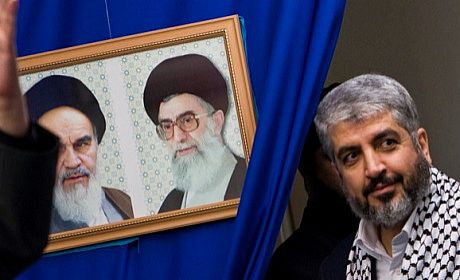Reconstructing Iran’s Relations with Muslim Brotherhood and Hamas

In a recent interview with Lebanese newspaper al-Akhbar, Bashar Assad, the Syrian President, has criticized the positions of the Hamas leaders with regard to the crisis in Syria and reiterated that “In the beginning, Damascus did not regard Hamas as a movement affiliated with the Muslim Brotherhood. But they decided, from the first days of the developments in Syria, to act against us and chose this option. In the end, Hamas decided to come out of the axis of resistance and be a part of the Muslim Brotherhood. The history of the Muslim Brotherhood, during the past 80 years, has been tied with treason, opportunism and shaky positions.” These statements are the most obvious signs of rift in the axis of resistance since the beginning of the crisis in Syria which not only is to the disadvantage of Iran but also against the collective interests of the region and the entire world of Islam. The Islamic Republic of Iran, as an Islamic country, is duty-bound to create unity between different forces of the world of Islam so that one voice is heard from the Islamic world.
The rift which exists today between the Hamas movement and the government of Syria dates back to the start of the popular movements in the Arab countries. When popular uprisings began in the Arab states and Arab revolutions occurred, the Hamas movement evaluated these developments as its strategic depth and attempted to use this opportunity to strengthen its power and reconstruct its position in the region. One of the most important developments in this regard was the downfall of Hosni Mubarak in Egypt and the coming to power of the Muslim Brotherhood and the Islamist government of Morsi. It is obvious that the Hamas movement saw Morsi’s government as being very close to itself, thus, relations between Hamas and the government of Egypt became much warmer than any other time.
At the same time, the government of Syria, which was one of the main supporters of the Hamas movement and which hosted this group for many years, used violence against people’s protests. In the beginning of popular protests in Syria, the Hamas movement attempted to mediate between the Syrian government and the Islamist opposition but to no avail. That is why Hamas decided to leave its old ally. The crisis in Syria and the approach of the Syrian government with regard to the opposition led Hamas to distance itself from its old friends especially the government of Syria and its strategic ally, Iran, and become closer to Turkey and Qatar.
But developments did not progress as Hamas had predicted. The government of Morsi was overthrown with popular protests and the army’s interference and relations between Egypt and Hamas were again tarnished. Qatar did not show its previous collaboration with the Muslim Brotherhood and Turkey was also confronted with domestic problems. On this basis, it seems that Hamas is again turning towards Iran so that it could, perhaps, reconstruct its cold relations with Iran considering the coming to power of the moderate government of Dr. Rohani. Hamas and Iran have always had their traditional relations and all of the Hamas leaders have a positive view of Iran and have been supported by it. But the issue of Syria has created a misunderstanding, which still exists and could lead to more differences. But this issue will not cause the common interests between Iran and Hamas to be forgotten. Although even if the issues of Syria are resolved, the challenge between Iran and Hamas will be reduced, now that this issue is not resolved, and considering the problems created for the revolution in Egypt, it seems that the ground is prepared for Hamas to feel the need to cooperate with Iran.
The Islamic Republic of Iran might have differences with countries or different Islamic political groups with regard to different issues, but we must, while considering these differences, attempt to work with each other based on the general interests of the world of Islam and cooperate on the basis of commonalities. The solution is to have a flexible approach with regard to these issues.
It is obvious that strategically Iran is an ally of Syria, but Iran cannot ignore its relations with Hamas because of Syria and its differences with this movement. The Hamas movement is an effective movement in the Palestinian scene and the world of Islam and its background shows that it believes in resistance. The fact that this movement sees itself as being close to the Muslim Brotherhood cannot mean that it has distanced itself, as Bashar Assad has stated, from the resistance. Hamas has played an important role in the past resistance in Palestine and will play this role in the future as well. On this basis, Iran cannot choose between the government of Syria and the Hamas movement. Iran must make efforts to prevent the growing differences between the two main arms of resistance, Hezbollah and Hamas, and bring them closer than ever before. Meanwhile, the Muslim Brotherhood, as a rooted group with an Islamic background, can play a positive role. Among the Sunni groups, Muslim Brotherhood is closer to Iran, for this movement, contrary to the Salafi and radical Sunni groups, has a modern ideology and believes in democracy, freedom, and development.
Therefore, Iran must not allow the crisis in Syria to overshadow this country’s relations with the Muslim Brotherhood, in general, and Hamas, in particular, and destroy the possibility of pursuing common ideals and interests. Amidst the existing differences in the world of Islam and the present radicalism, Iran can consider the least of its common interests with this group and enter into dialogue with them. Such a dialogue can better provide Iran’s interests in the region and the world of Islam.

